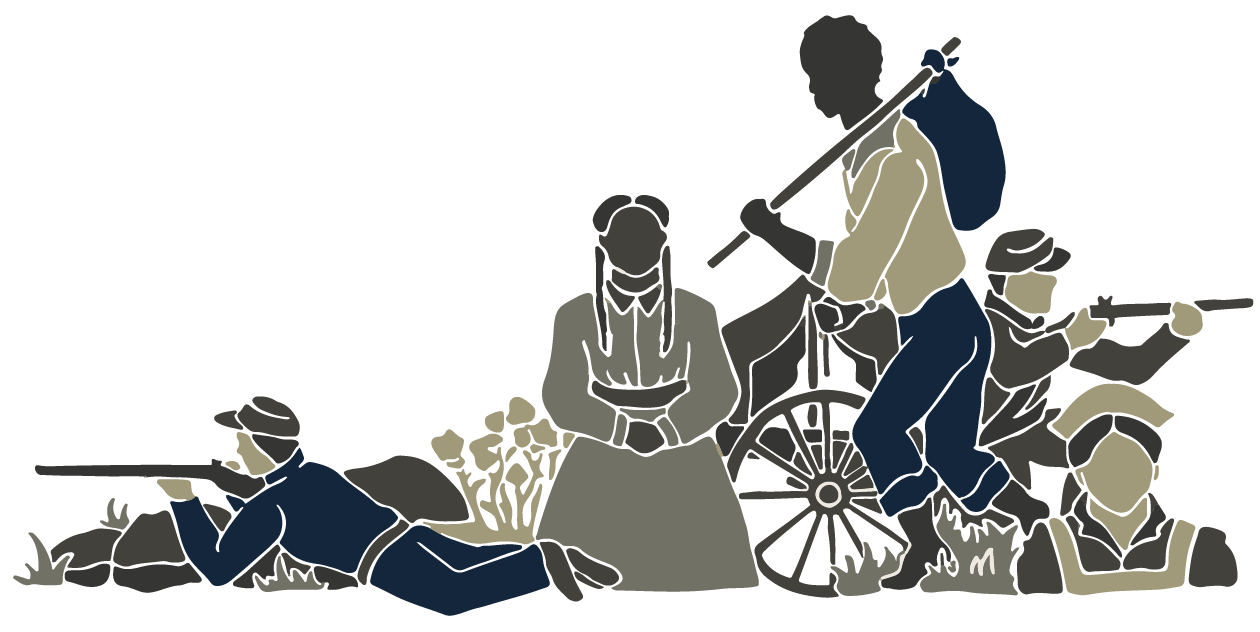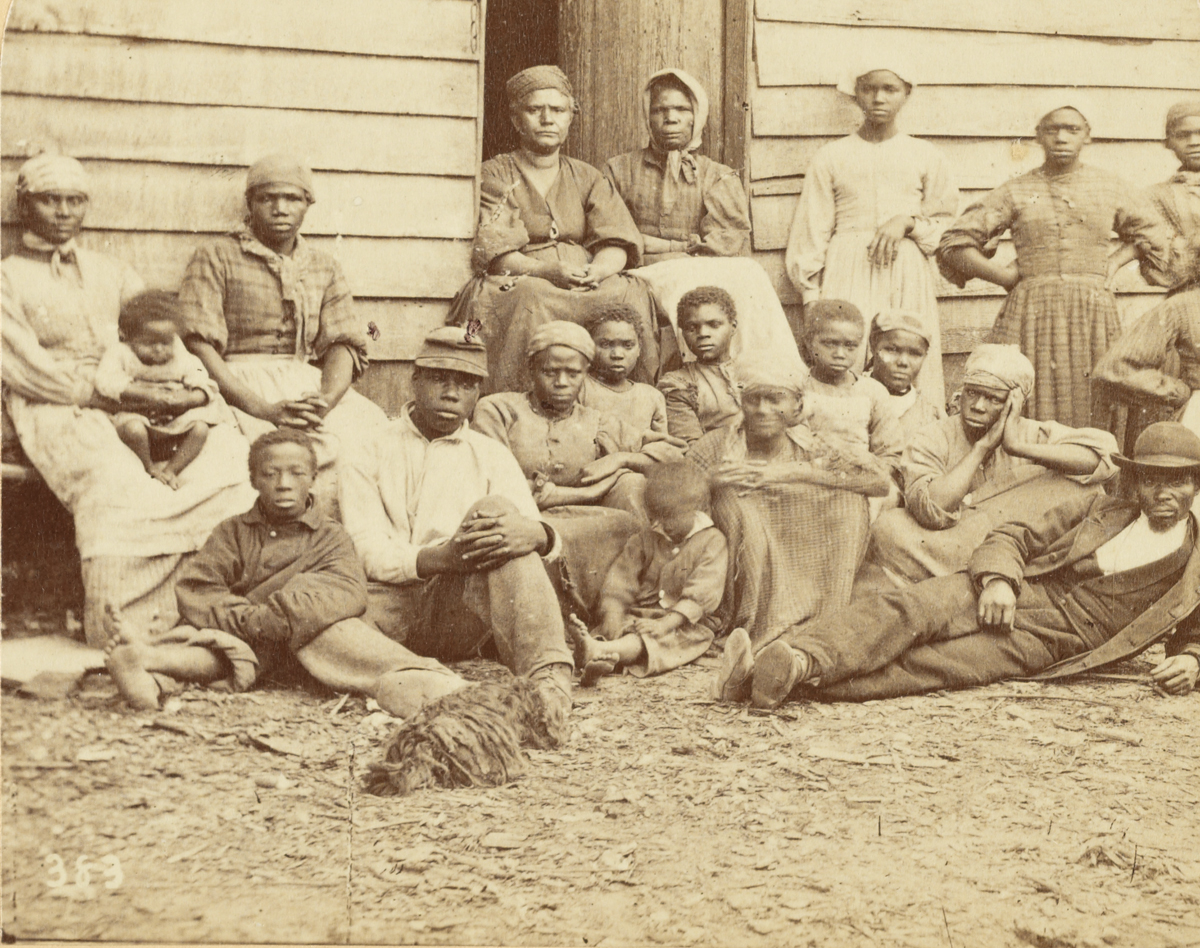The center will sponsor an academic conference, “The Great Strike: Slavery During the American Civil War,” April 21-23, 2022, at Virginia Tech in Blacksburg, Virginia.
Thursday April 21, 2022
3:00 – 4:00 PM REGISTRATION (hotel foyer)
4:00 – 5:45 PM WELCOME; BLACK MILITARY EXPERIENCES
Chair: Caroline Newhall
Anthony J. Cade II, “A Test of Courage: The African American Experience in the Louisiana
Native Guard”
Douglas R. Egerton, “The Freedom Jubilee: Wentworth Higginson and the First South Carolina Infantry Regiment”
Holly A. Pinheiro, Jr., “Jasper Grey and the Thirty-First USCT”
6:00 p.m. – 7:30 p.m. Dinner
7:30 p.m. – 8:30 p.m. Keynote Lecture
Crystal Feimster, “Truth Be Told: The Battle for Black Freedom in Civil War Louisiana”
Friday Apr 22, 2022
9:00 a.m. – 10:30 a.m. SLAVERY IN PRINT
Chair: Jaime Martinez
Ariana Nadia Nash and Jacob Sloan, “Frances Harper’s “Moses: A Story of the Nile”: Exodus as the Great Strike, the Great Strike as Future Possibility”
Shakeel A. Harris, “Absconders & Acquisitions in the Carolinas: Civil War Coverage of
Slavery in the News”
Lawrence T. McDonnell, “From “Great Strike” to General Strike: Recovering the Revolutionary Heart of DuBois’ Argument”
10:30 a.m. – 11:00 a.m. Coffee
11:00 a.m. – 12:30 p.m. STRATEGIES OF SURVIVAL AND RESISTANCE
Chair: Lucien Holness
Marcy S. Sacks, “’The Negro Minstrels are Correct’: Black Refugees’ Survivalist Strategies during the American Civil War”
Lois Leveen, “”In the guise a slave”: Surviving Richmond Unfreedom, Supplying Federal Intelligence”
Kerri Moseley-Hobbs and Jaraux Washington, “More Than a Fraction: Enslavement and its Legacies”
12:30 p.m. – 2:15 p.m. Lunch
2:15 p.m. – 3:45 p.m. LABOR
Chair: Daniel Thorp
David Gleeson, “No ‘General Strike’: Slavery, the Shelby Iron Company, and the Confederate War Effort.”
Patrick Sheridan and Adam H. Domby, “What Went Unseen In Glory: Using The Slave Rolls Project to Analyze Confederate Impressment and Resistance of Enslaved People”
Anne E. Kerth, “Mechanics and Skilled Laborers Alone Excepted”: Southern Black Artisan Labor and the Union Army
3:45 p.m. – 4:15 p.m. Coffee
4:15 p.m. – 5:15 p.m. ENSLAVED PEOPLE AND THE PROCESSES OF EMANCIPATION
Chair: Crystal Feimster
Hilary Green, “The University of Alabama Slaves’ General Strike of 1865”
Scott A. MacKenzie, “’Turns that much slave soil to free:’ The Pivotal Role of Enslaved People in West Virginia’s Emancipation and Statehood”
5:30 p.m. – 6:30 p.m. Keynote Lecture
Jaime Martinez, “Negotiating Slavery’s ‘Volunteer State’ to Avoid Confederate Military Labor”
6:30 p.m. Dinner (on your own)
Saturday Apr 23, 2022
9:30 a.m. – 10:30 a.m. ENSLAVED MOTHERS, CAREGIVERS, AND THE ELDERLY
Chair: Robert Colby
Jessica Wicks-Allen, “Fugitive-Slave Mothers in the U.S. Civil War”
Jonathan Lande, “Leaves of Freedom and Black Caregivers in the Union Ranks during Emancipation”
10:30 a.m. – 11:00 a.m. Coffee
11:00 a.m. – 12:30 p.m. INTERNATIONAL PERSPECTIVES
Chair: Paul Quigley
Samantha Payne, “The General Strike and the Fall of Atlantic Slavery, 1861-1865”
Adam Thomas, “Complicating Collectivity: Du Bois’ “General Strike” in a Jamaican Context”
David Brown, “The Black Abolitionist Mission to the British Isles during the Civil War”
12:30 p.m. – 2:00 p.m. Lunch
About the conference:
Dr. W.E.B. Du Bois asserted that American enslaved people freed themselves during the Civil War in his 1935 work, Black Reconstruction. Du Bois referred to the unprecedented scale of this rebellion as “the general strike,” a concept that historians have applied to their work since the 1980s. Most studies of slavery in the United States, however, continue to end in 1860, while most studies of Black Americans during the Civil War center upon military service, refugees’ experiences in contraband camps, or the aftermath of the war and Reconstruction. Enslaved peoples’ activities during the Civil War have only begun to emerge as central to understanding nuances surrounding politics, warfare, labor, race, gender, class, and other significant themes of the Civil War Era in the last decade.
As scholarship increasingly centers the experiences of people, places, and events often left out of traditional narratives of the period, or minimized as less important to these narratives, we must grapple with important questions such as: what did enslaved people do in various regions to navigate the contingencies of the war? How did enslaved people use their relationships and rely upon one another to survive and fight against enslavement? What choices did enslaved people have to make regarding themselves, their kin networks, and their communities? This conference will address the myriad ways in which enslaved people experienced the Civil War, and their effect upon the war itself.

